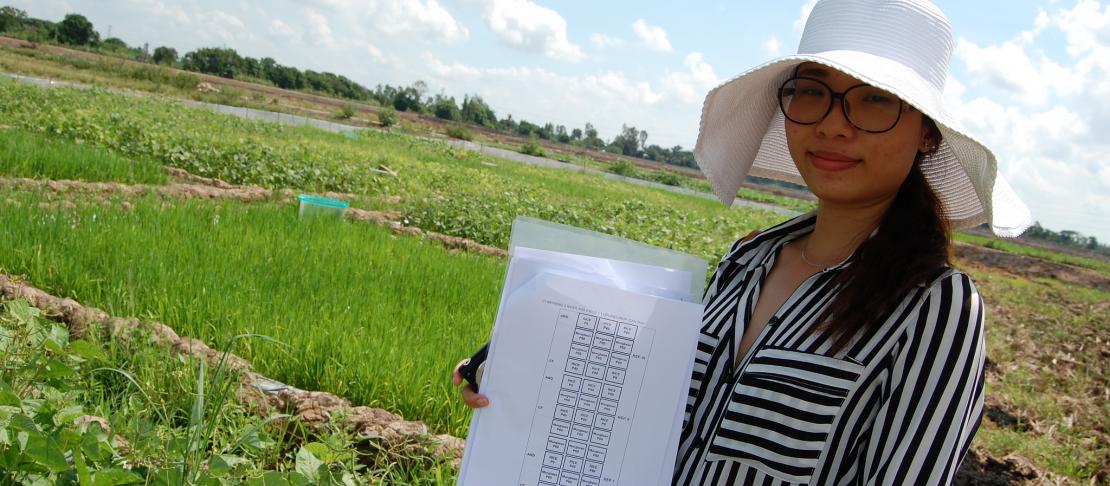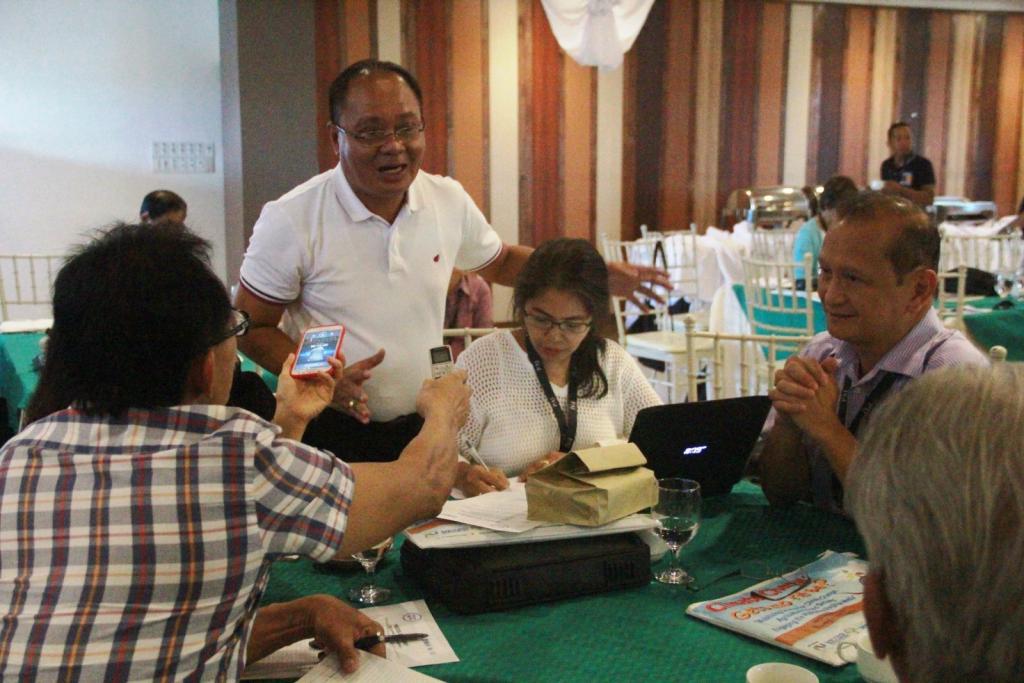Sharing climate change science with Philippine provincial media

A recent pilot workshop in Legazpi kicks off new initiative aiming to improve climate-related media coverage on the Pacific island.
In an unprecedented move, members of the Philippine private sector collaborated with public sector organizations to conduct the first of a series of media workshops on climate change, agriculture and food security with provincial journalists in the Philippines.
"There is a need to properly share the responsibility of writing, publishing and broadcasting more and better stories on climate change, as it can no longer be business as usual,” says Atty Michael Toledo, Senior Vice President for the Philex Mining Corportation Public and Regulatory Affairs, one of the sponsors of the workshop. Recognizing this need, a group of public and private-sector actors established a partnership to organize the regional workshop series.
Starting in one of the most vulnerable provinces, in Legazpi City of Albay province, 37 journalists and 16 officers from the government and the academia participated in a media workshop on climate change, agriculture and food security from 30 July to 1 August. The two-day workshop provided the media practitioners with science-based knowledge on climate change with the aim of improving future coverage of climate-related issues. This is the first of a series of media workshops to be held in other provinces of the country this year.
Legazpi is a strategic choice for the activity as it is usually hit by strong tropical storms from the eastern Pacific seaboard of Luzon, causing severe damages to the province’s agriculture sector, livelihoods and infrastructure. In learning their lessons, the province has implemented policies and programmes to make the province resilient and highly adaptive to extreme weather events.
The workshop series is sponsored by the Philippine Agricultural Journalists (PAJ), Metro Pacific Investments Corporation (MPIC), Smart Communications, Philex Mining Corporation and the Philippine Department of Agriculture (DA). Further support comes from the CGIAR Research Program on Climate Change, Agriculture and Food Security Southeast Asia (CCAFS SEA), the International Rice Research Institute (IRRI), the World Agroforestry Centre (ICRAF), the Philippine Federation of Rural Broadcasters (PFRB), Philippine Science Journalists (PsiJourn) and the Philippine Network of Environmental Journalists (PNEJ).
Communicating climate change better
'Climate Change: Do You Get It Now?' was the theme of the workshop. The speakers, from research organizations, government agencies and media networks, and the panel discussions focused on the general impacts of climate change on agriculture, food security and the economy, and on important issues and climate challenges specific to the area. The discussions also revolved around how the Bicol region responds to such challenges within the policy framework of the region and of the country.
Workshop participants interviewing Engr. Abelardo R. Bragas and Dr Leo Sebastian after the opening program of the first day. Photo: A. Cruz (ICRAF)
On the second day, the participants went on a tour in the city and sites such as the solid waste management project of the local government unit of Legazpi City and a disaster relief center of the provincial government in Camalig, Albay. Later, ‘marketplace’ discussions between the speakers and the media participants wheedled out potential story ideas from the presentations, panel discussions and site visits, and the possible collaborative activities that can be taken forward. The ideas broadly ranged around: broadcasting a one-hour radio program explaining the science of climate change and adaptation measures for farmers; write-ups about farms already adopting sloping agricultural land technologies; and, organizing a cooperative to reach out to family and friends about climate change, agriculture and environment.
Participant journalists should have both the tools and the motivation to communicate climate change effectively
According to Imelda Abaño, President of PNEJ, workshop panelist and participant journalists should have both the tools and the motivation to communicate climate change effectively. "Another important aspect is the collaboration between and among journalists, climate scientists, researchers and institutions to articulate issues and concerns on climate change mitigation, adaptation and its relation to food security and agriculture," she says.
Moving forward
The idea of conducting a regional media workshop in the Philippines stemmed from a previous initiative organized by CCAFS SEA for country journalists in Vietnam, Cambodia, Lao PDR and the Philippines held last and this year.
All these initiatives would contribute to the strategic communication objective of CCAFS to “[get] climate change into agriculture policies and agriculture into climate change policies.” The integration of communication networks and initiatives could help target not only individuals but communities, academics, research communities and decision makers.
Media coverage of climate-related issues:
- Climate change is ‘game-changer,’ wipes away investments, efforts
- Climate change reporting workshop rolls on in Albay
- Communicating climate change: bridging science and society
- Bicol reporters take up newsroom workshop on climate change
- Build up resiliency to climate change – DA
Read more:
- CCAFS-SEA kicks off first media workshop on how to report about climate change with impact
- Brainstorming with the media on climate change in Vietnam
- Laotian media professionals trained in climate change
Amy Cruz is the junior communications specialist for the World Agroforestry Centre Philippines. She is also a communication consultant with the CCAFS SEA program.

